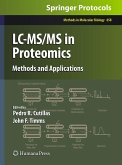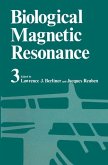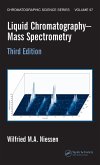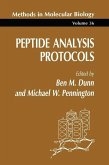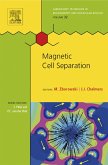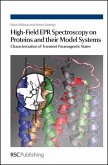As the emerging field of proteomics continues to expand at an extremely rapid rate, the relative quantification of proteins, targeted by their function, becomes its greatest challenge. Complex analytical strategies have been designed that allow comparative analysis of large proteomes, as well as in depth detection of the core proteome or the interaction network of a given protein of interest. In Functional Proteomics: Methods and Protocols, expert researchers describe the latest protocols being developed to address the problems encountered in high-throughput proteomics projects, with emphasis on the factors governing the technical choices for given applications. The case studies within the volume focus on the following three crucial aspects of the experimental design: 1) the strategy used for the selection, purification and preparation of the sample to be analyzed by mass spectrometry, 2) the type of mass spectrometer used and the type of data to be obtained from it, and 3) the method used for the interpretation of the mass spectrometry data and the search engine used for the identification of the proteins in the different types of sequence data banks available. As a part of the highly successful Methods in Molecular Biology(TM) series, the chapters compile step-by-step, readily reproducible laboratory protocols, lists of the necessary materials and reagents, and tips on troubleshooting and avoiding known pitfalls.
Comprehensive and cutting-edge, Functional Proteomics: Methods and Protocols is an ideal resource for all scientists pursuing this developing field and its multitudinous data.
Comprehensive and cutting-edge, Functional Proteomics: Methods and Protocols is an ideal resource for all scientists pursuing this developing field and its multitudinous data.
Dieser Download kann aus rechtlichen Gründen nur mit Rechnungsadresse in A, B, BG, CY, CZ, D, DK, EW, E, FIN, F, GR, HR, H, IRL, I, LT, L, LR, M, NL, PL, P, R, S, SLO, SK ausgeliefert werden.
From the reviews: "The new book, Functional Proteomics, Methods and Protocols ... is the perfect guide to securely navigating through the plethora of recent as well as established proteomic technologies. ... In summary, I highly recommend this book as an excellent source for gaining insight into a diverse array of the latest proteomic protocols ... . suitable for everyone working in the field of proteomics, including chemists, biologists, analytical chemists, and biochemists at different career stages, from students to the trained and experienced scientist." (Stephan A. Sieber, ChemBioChem, Vol. 10 (18), 2009) "Book presents a collection of methods about correct techniques to identify, monitor, quantify, and explain protein and peptide function. ... present different types of mass spectrometers and their uses, allowing the reader to choose the most useful technique for a specific purpose. ... The strategy behind metabolomic studies is well described in this book. ... The book concludes with the indispensable application of bioinformatics in the understanding of regulatory and protein systems which are influenced by the environment." (Mario Hiroyuki Hirata, Brazilian Journal of Pharmaceutical Sciences, 2010) "The field of proteomics continues to develop rapidly and its main focus has now moved from increasing capacity for protein identification to quantification and the analysis of post-translational modifications. ... this volume attempts to provide detail regarding some of the latest approaches being used. ... will be of use to many PhD students and postdoctoral scientists ... . a well-written and informative book, and one which would be useful to have in any proteomics lab ... ." (Lucas Bowler, Microbiology Today, August, 2010)



